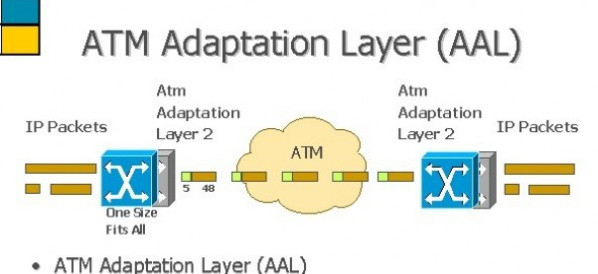 10 Terms
10 TermsHome > Terms > English (EN) > mouse
mouse
A small peripheral device that controls the movement of the pointer on a display screen; also called "mouse cursor", "mouse pointer", "e-rodent". By rolling the mouse along a flat horizontal surface (to improve traction a small piece of textured material, called a "mouse pad", is often used), a pointer correspondently moves on the display screen. All mice have at least one activation button, and may have as many as three, with a scroll wheel for reviewing long documents; the function of the mouse button varies from system to application. Invented by Douglas C. Engelbart / Englehart of Stanford Research Center in 1963, and pioneered by Xerox in the 1970s, the mouse is an ergonomic alternative to keyboarding commands. It is possible to "mouse ahead" with moves so swift that the computer's response will be delayed. In graphical user interfaces (GUI), the mouse cursor can point to options or objects and activate them by clicking a mouse button. Such "clickable" environments, known as "point-and-click", include symbols that change shape depending upon context, or change options depending upon application. System functions, like "drag-and-drop", are program independent. In graphics programs, the mouse may be used as a pen, stylus, or paintbrush to illustrate objects. There are several types of mice: (1) mechanical: has a rubber or metal ball on its underside that can roll in all directions, so the mechanical sensors (called "encoders") within the mouse will detect the direction the ball is rolling and move the screen pointer accordingly; (2) optomechanical: similar to a mechanical mouse, but uses optical sensors to detect the motion of the ball; (3) optical: uses a laser (no mechanical moving parts) to detect the mouse's movement, which is moved along a special grid mat, so that the optical mechanism has a frame of reference for rapid response. A flying mouse can be lifted off the desk, and used as a three-dimensional pointer. A mouse may be foot-operated for special circumstances. Mice connect to computers variously by: specific socket ("mouse port"), RS-232C or PS/2 serial port ("serial mouse"), expansion board ("bus mouse"), ADB port ("Macintosh mouse"). Cordless mice aren't physically connected, but rely upon infrared or radio waves to communicate with the computer. The term commonly derives from its resemblance to a long-tailed rodent scurrying across a desktop; but the word means "small". See pointer, trackball, joystick, insertion point.
- Part of Speech: noun
- Synonym(s):
- Blossary:
- Industry/Domain: Printing & publishing
- Category: Publishing
- Company:
- Product:
- Acronym-Abbreviation:
Other Languages:
Member comments
Terms in the News
Billy Morgan
Sports; Snowboarding
The British snowboarder Billy Morgan has landed the sport’s first ever 1800 quadruple cork. The rider, who represented Great Britain in the 2014 Winter Olympics in Sochi, was in Livigno, Italy, when he achieved the man-oeuvre. It involves flipping four times, while body also spins with five complete rotations on a sideways or downward-facing axis. The trick ...
Marzieh Afkham
Broadcasting & receiving; News
Marzieh Afkham, who is the country’s first foreign ministry spokeswoman, will head a mission in east Asia, the state news agency reported. It is not clear to which country she will be posted as her appointment has yet to be announced officially. Afkham will only be the second female ambassador Iran has had. Under the last shah’s rule, Mehrangiz Dolatshahi, a ...
Weekly Packet
Language; Online services; Slang; Internet
Weekly Packet or "Paquete Semanal" as it is known in Cuba is a term used by Cubans to describe the information that is gathered from the internet outside of Cuba and saved onto hard drives to be transported into Cuba itself. Weekly Packets are then sold to Cuban's without internet access, allowing them to obtain information just days - and sometimes hours - after it ...
Asian Infrastructure Investment Bank (AIIB)
Banking; Investment banking
The Asian Infrastructure Investment Bank (AIIB) is an international financial institution established to address the need in Asia for infrastructure development. According to the Asian Development Bank, Asia needs $800 billion each year for roads, ports, power plants or other infrastructure projects before 2020. Originally proposed by China in 2013, a signing ...
Spartan
Online services; Internet
Spartan is the codename given to the new Microsoft Windows 10 browser that will replace Microsoft Windows Internet Explorer. The new browser will be built from the ground up and disregard any code from the IE platform. It has a new rendering engine that is built to be compatible with how the web is written today. The name Spartan is named after the ...
Featured Terms
atm adaptation layer
The ATM Adaptation Layer (AAL) is designed to support different types of applications and different types of traffic, such as voice, video, imagery, ...
Contributor
Featured blossaries
Leonardo D. Menezes
0
Terms
1
Blossaries
0
Followers
Playing RPG Games
 1 Terms
1 Terms
Browers Terms By Category
- Biochemistry(4818)
- Molecular biology(4701)
- Microbiology(1476)
- Ecology(1425)
- Toxicology(1415)
- Cell biology(1236)
Biology(22133) Terms
- Digital Signal Processors (DSP)(1099)
- Test equipment(1007)
- Semiconductor quality(321)
- Silicon wafer(101)
- Components, parts & accessories(10)
- Process equipment(6)
Semiconductors(2548) Terms
- Festivals(20)
- Religious holidays(17)
- National holidays(9)
- Observances(6)
- Unofficial holidays(6)
- International holidays(5)
Holiday(68) Terms
- Cosmetics(80)


